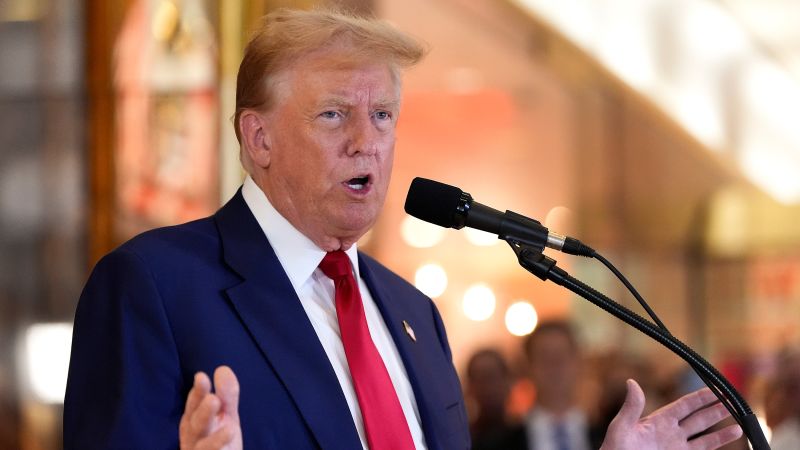Former President Donald Trump recently suggested that he would pursue prosecution against his political opponents if he were to be reelected. This statement came as he discussed his criminal conviction in New York, where he faces the possibility of a prison sentence following his conviction on 34 felony counts of falsifying business records. Trump expressed concerns about the precedent this sets for the country and questioned whether future presidents could similarly target their opponents in such a manner.
Since his initial indictment over a year ago, Trump has hinted at using the Justice Department against his rivals, specifically mentioning the appointment of a special prosecutor to investigate President Joe Biden and his family if he were to win reelection. Despite facing charges in multiple criminal cases, Trump has maintained his innocence. He has a history of calling for the imprisonment of former Democratic presidential opponent Hillary Clinton, even though she has never been charged with a crime. In a recent interview, Trump acknowledged that he refrained from pursuing legal action against Clinton as he believed it would set a negative precedent.
Trump’s sentencing hearing is set for July 11, following his conviction in a criminal hush money trial related to the 2016 presidential election. Prosecutors accused him of participating in an illegal conspiracy to influence the election and suppress negative information, including payments to adult film star Stormy Daniels. The judge will determine Trump’s sentence, which could range from prison time to probation. Despite the legal challenges he faces, Trump is scheduled to attend a campaign event in Phoenix hosted by Turning Point Action, a right-wing nonprofit organization.
The former president’s remarks about potentially prosecuting his political opponents have raised concerns about the abuse of power and the erosion of democratic norms. By suggesting that he would use the Justice Department to target his rivals, Trump is fueling debates about the legitimacy of such actions and their impact on the rule of law. His comments not only reflect his personal grievances but also hint at a willingness to weaponize the legal system for political gain, a tactic that has drawn criticism from both sides of the political spectrum.
As Trump continues to face legal challenges and court proceedings, his rhetoric about prosecuting political opponents underscores the divisive and polarized nature of American politics. The potential implications of his statements on the justice system and democratic institutions are significant, prompting reflection on the balance of power and accountability in a democratic society. Regardless of the outcomes of his legal battles, Trump’s actions and words speak to broader concerns about the role of the presidency, the rule of law, and the future of American democracy in an increasingly volatile political landscape.













